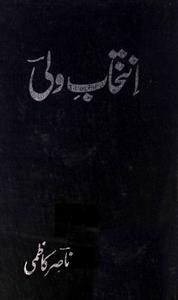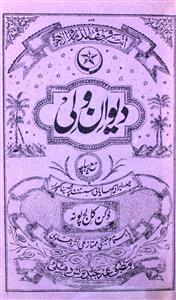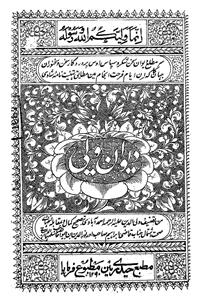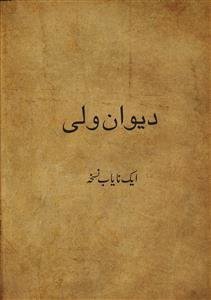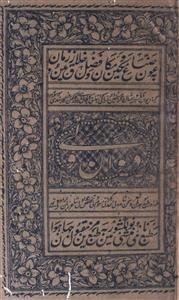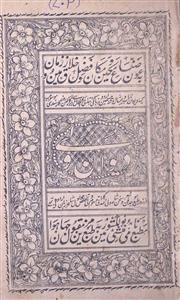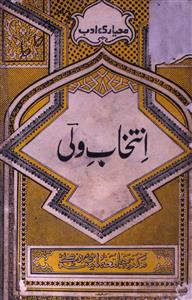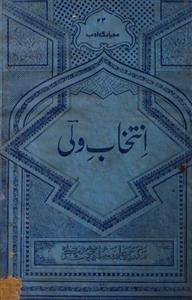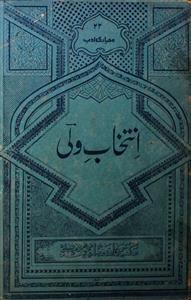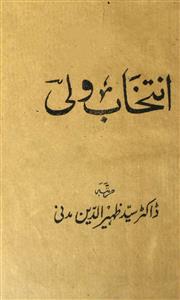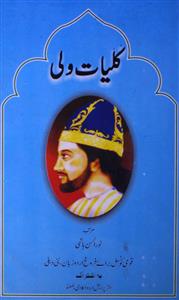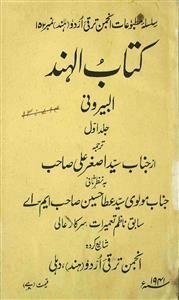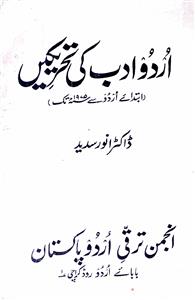 For any query/comment related to this ebook, please contact us at haidar.ali@rekhta.org
For any query/comment related to this ebook, please contact us at haidar.ali@rekhta.org
About The Book
ایک عرصے تک اردو شاعری کے باوا آدم کہلائے جانے والے ولؔی دکنی کے کلام نے اردوشاعری کو پروان چڑھانے میں اہم کردار ادا کیا ہے۔ان کے کلام اپنی زبان و بیان کی نفاست ،شعری لطافت،صوفیانہ رنگ اور دلکش تراکیب، صنعتوں کے ساتھ دلچسپ ہے۔بے شک ان کا یہ کلام اردو کی ابتدائی شکل میں ہے لیکن متنوع موضوع، خیال کی رنگینی،بیان کی سادگی ،روانی ،تشبیہات و استعارات کی جدت ،معنی آفرینی کا ایسا حسین امتزاج ہے ۔جس کا مطالعہ آج بھی قارئین کو کیف و سرور عطا کرتا ہے۔ولی نے ہر صنف سخن میں طبع آزمائی کی ہے اور اپنی فن کا لوہا منوایا ہے۔غزل ،قصیدہ ،رباعی ،مستزاد، قطعہ اور مثنوی وغیرہ ہر صنف میں ان کا منفرد اسلوب نمایاں ہے۔لیکن غزل کو ولی نے اور ولی کو غزل نے جو شہرت عطا کی وہ دوسری اصناف کے حصے میں نہیں آسکیں۔انتخاب ولیؔ میں ان کے کلام کا منتخبہ حصہ شامل ہے۔ان کی کلام کی اثر پذیری اور مقبولیت کی ایک وجہ یہ بھی تھی کہ ان کے کلام میں ہندی الفاظ کی گھلاوٹ اور فارسی کی رنگینی و شرینی موجود تھی۔ زیر نظر انتخاب کو دور جدید کے عظیم شاعر ناصر کاظمی نے انجام دیا ہے۔ اس لئے اس انتخاب کا مطالعہ دلچسپی سے خالی نہیں۔
About The Author
Vali Deccani (1667-1707) whose name is variously recorded in histroy as Shamsuddin Mohammad Vali, Shams Valiullah, Valiuddin Vali, and Vali Mohammad Vali, is generally recognised in literary history as Vali Deccani and, at times, Vali Gujarati. Said to have been born in Ahmedabad in Gujarat, or Aurangabad in Maharashtra, he travelled to the far ends of the south and the north, including Delhi. He is claimed till now both by Deccan and Gujarat although he lies buried in the city of Ahmedabad where his grave was vandalised during the infamous riots of 2002.
Vali lived in a time of political and social turmoil but sought his sustenance from the larger mystic traditions of India. He considered literature as a way of negotiating between the physical and the spiritual. The figure of the lover in his poetry represents both the worlds of the sensual and the non-sensual. Even though well versed in the Persian literary tradition and the Deccani and Hindi phraseology, Vali surprised the literary circle in Delhi with his non-Persianised Urdu divaan and its linguistic freshness, which till then was called rekhta, a language of the lesser literay kind, not quite fit for sober poetic expression. His choice for the plebeian idiom and his effort to blend it with other linguistic and literary traditions of the north and the south altered the stereotypical notions of those who championed the purity of language, as a necessary condition for serious literary expression. A master image-maker and an innovator of refreshing similes and metaphors, Vali has come to be categorised as a canonical figure in Urdu poetry.
 For any query/comment related to this ebook, please contact us at haidar.ali@rekhta.org
For any query/comment related to this ebook, please contact us at haidar.ali@rekhta.org
